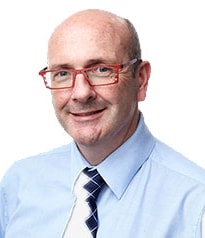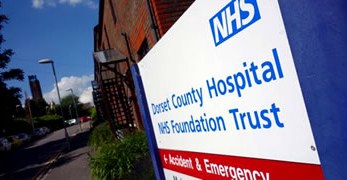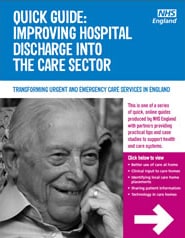CHS Healthcare has a new hub of specialists located in the renowned Royal Hospital for Neuro-disability in Putney, south-west London.
The team of ten experts in continuing healthcare have moved into the RHN, which has a distinguished 160-year history of meeting the needs of people with profound disabilities.
The move enhances the existing partnership between CHS Healthcare and the RHN. A two- day module in continuing healthcare, developed and delivered by CHS, takes place in the lecture theatre at the RHN.
Carol Groves, Head of Contract Management at the RHN, explains: “From our perspective, the main benefit of this partnership is the knowledge of our client group that CHS Healthcare brings.
“Our residents are at the heart of everything we do, together with their families, who we work with and support very closely.
“Understandably, families find the process of continuing healthcare assessments and reviews extremely stressful. It is very challenging too for the funding NHS organisations. The whole process can create a sense of ‘us and them’ between families and assessors.
“Having a resource of experts in continuing healthcare here within the RHN is a real strength; both for us as a service to support our own understanding of this critical arena and equally, is good for our residents and their families.”
The CHS Healthcare team at the RHN is currently commissioned to provide an end-to-end continuing healthcare service for Wandsworth clinical commissioning group.
This encompasses managing all new applications for continuing healthcare funding, all reviews of existing funding and appeals, together with all aspects of CHC administration and management. CHS Healthcare also provides end-to-end continuing healthcare services for Swindon CCG.
In a recent benchmarking exercise, both end-to-end services for Wandsworth and Swindon were shown to deliver outcomes consistently within national median levels (if continuing healthcare funding awards are either extremely high or low, compared with national averages, the application of the national framework is likely to be incorrect).
The CHS Healthcare team located in the RHN is commissioned by Wandsworth CCG. They are currently responsible for continuing healthcare services for Wandsworth patients only, but future collaborations with other CCGs are possible. As a highly specialised hospital, the RHN has patients funded by CCGs all over the country, many of whom are a long distance from the hospital, so patients are assessed by nurses located hundreds of miles away.
Lynn Cunningham, Chief Operating Officer at the RHN said: “We are always keen to collaborate and to build partnerships, but these are frequently used terms; you need something tangible to bring collaborations to life.
“Research and education has a very important place for us, so we recognised the value of the two-day module in continuing healthcare developed by CHS Healthcare. Many of our staff have completed the module and benefitted from this experience.
“Moving forward to having a team located here in the RHN, we both share a vision which is about quality, specialist knowledge, values and development. This partnership feels very fortuitous and mutually beneficial.”
Harry Bourton, CHS Healthcare regional manager leading the team in Wandsworth, commented: “We are deeply appreciative of the way the RHN has supported us, both in terms of accommodating our team and in hosting our continuing healthcare module.
“We are very proud to be working with the RHN which has such a distinguished history of working with people who have profound disabilities. It is a very special place and we are delighted to be working here.”








